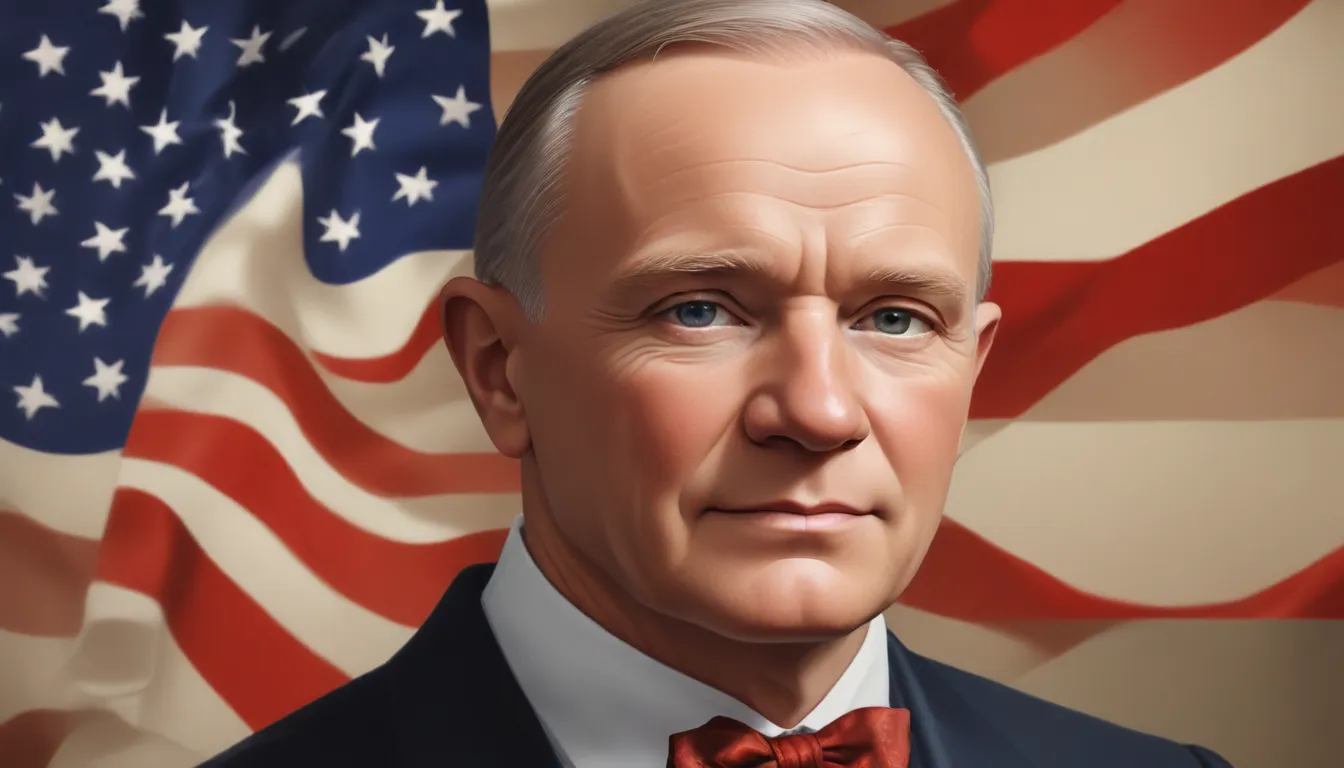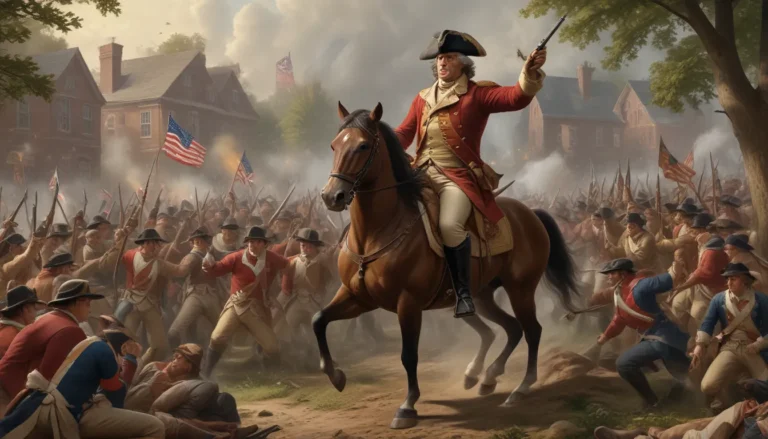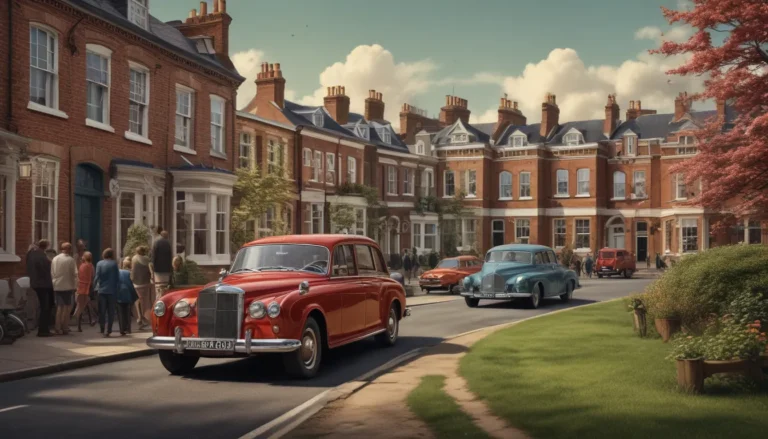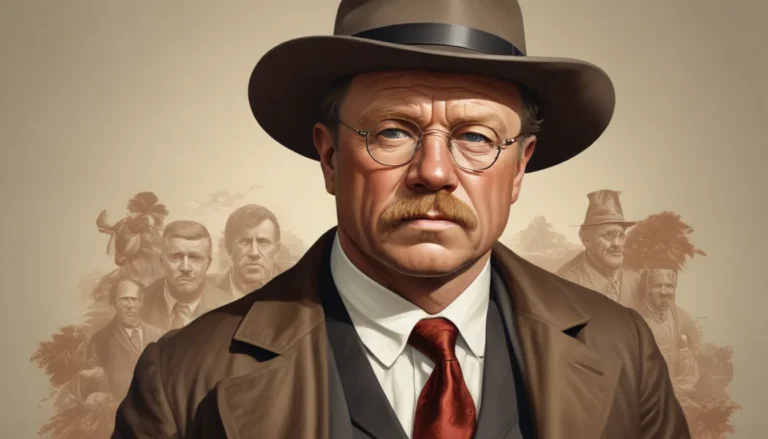The images in our articles may not match the content exactly. They are used to grab your attention, not to show the exact details in the text. The images complement the text but do not replace it.
Have you ever been curious about the quieter side of American presidency? Calvin Coolidge, the 30th President of the United States, brings a captivating blend of silence, wit, and unexpected quirks that may surprise you. Known as “Silent Cal” for his brevity, Coolidge’s life is filled with anecdotes that are far from dull. From his unique pet choices to his straightforward governance style, Coolidge’s presidency is a treasure trove of intriguing facts. Join us as we delve into the world of Calvin Coolidge, where silence speaks volumes and simplicity reigns. Get ready to uncover 18 great fun facts that offer a glimpse into the man behind the presidency.
Calvin Coolidge: A Man of Vermont Values and Leadership
Calvin Coolidge, born on July 4, 1872, in Plymouth Notch, Vermont, holds the distinction of being the only U.S. President born on Independence Day, adding a unique twist to his historical significance. Raised in a small town environment that valued hard work and public service, Coolidge’s early years in Vermont played a pivotal role in shaping his character and political viewpoints. Influenced by the community’s values of frugality, honesty, and independence, Coolidge carried these principles with him throughout his life.
Coolidge pursued his education at Amherst College in Massachusetts, where he studied law. Rather than opting for a traditional law school, he chose to apprentice at a law firm in Northampton, Massachusetts, a decision that reflected his practical approach to learning and skill development.
The Political Journey of Calvin Coolidge
Before assuming the role of the 30th President of the United States, Calvin Coolidge embarked on a gradual ascent through various political positions, honing his skills and principles along the way.
Starting his political career in local government, Coolidge served on the city council of Northampton, eventually progressing to roles as city solicitor and mayor. These early experiences provided him with a solid foundation in governance and public service, shaping his approach to leadership.
Coolidge’s tenure as Governor of Massachusetts showcased his firm leadership style, particularly during the Boston Police Strike in 1919. His resolute stance against the strike garnered national attention and elevated his reputation, propelling him into the national spotlight.
From Vice Presidency to the Oval Office
Calvin Coolidge’s journey to the presidency was marked by unexpected events and his distinct governance style.
Following the sudden passing of President Warren G. Harding in 1923, Coolidge assumed the presidency in a unique and unanticipated manner. Sworn in by his father, a notary public, at their family home in Vermont under the light of a kerosene lamp, Coolidge took the reins of leadership during a critical juncture in American history.
As President, Coolidge implemented economic policies that prioritized business growth and limited government intervention, fostering a period of remarkable economic prosperity known as the “Roaring Twenties.” Despite his reserved demeanor, Coolidge’s effective communication skills, notably through radio broadcasts, endeared him to the American public.
The Personal Life and Enduring Legacy of Calvin Coolidge
Beyond his political achievements, Calvin Coolidge’s personal life and legacy continue to captivate historians and the public alike.
A devoted family man, Coolidge married Grace Anna Goodhue, with whom he had two sons. Tragically, the loss of their younger son, Calvin Jr., during Coolidge’s presidency deeply affected the couple, highlighting the personal challenges they faced amidst the demands of public office.
Following his presidency, Coolidge retreated to Northampton, where he engaged in writing, including the creation of his autobiography. His legacy as a proponent of fiscal conservatism, small government philosophy, and the economic prosperity of the 1920s endures, though critics debate the potential role of his policies in the onset of the Great Depression.
Coolidge’s Lasting Impact on American Politics
Calvin Coolidge’s time in office left an indelible mark on American politics and the presidency, shaping the trajectory of the nation’s governance.
Regarded as a key figure in the early 20th-century conservative movement, Coolidge advocated for lower taxes and smaller government, embodying his belief in limited intervention in business and economic affairs.
His electoral success, exemplified by a landslide victory in 1924 during a period of economic prosperity, underscored his popularity and widespread appeal among the American populace.
Coolidge’s judicial appointments to the Supreme Court influenced the court’s direction for years to come, while his use of radio broadcasts set a precedent for future presidents to directly engage with the public, revolutionizing presidential communication.
Fascinating Insights Into Calvin Coolidge’s Persona
In addition to his political legacy, Calvin Coolidge’s personal quirks and interests offer intriguing glimpses into his character and lifestyle.
Known for his eclectic pet collection, the Coolidge family housed a range of unusual animals at the White House, including a raccoon named Rebecca and a pygmy hippopotamus named Billy, adding a touch of charm to his presidential tenure.
Coolidge earned the distinction of being the first living President to have his portrait featured on a coin, commemorating the 150th anniversary of American independence in 1926, a testament to his historical significance.
Despite his traditional image, Coolidge harbored a passion for automobiles, frequently driving himself around Washington, D.C., much to the chagrin of the Secret Service, showcasing his embrace of modern technologies of his era.
Reflecting on Coolidge’s Enduring Legacy
Calvin Coolidge, America’s 30th president, left behind a legacy characterized by his quiet strength and steadfast leadership during the vibrant Roaring Twenties. His commitment to limited government and fiscal responsibility contributed to the economic prosperity of his time, embodying the principle that actions speak louder than words.
Coolidge’s presidency serves as a reminder of the power of silent determination and the significance of integrity in leadership. While overshadowed by more flamboyant figures in American history, Coolidge’s tenure imparts valuable lessons on the virtues of simplicity and the effectiveness of steadfast resolve.
As we commemorate Coolidge’s contributions, we recognize that his presidency was not solely defined by what he said, but more significantly by what he achieved, resonating with the enduring impact of his governance.
Trusted Resources for Engaging Content
Ensuring the delivery of informative and captivating content is our top priority. Each fact presented on our platform is sourced from real users like you, offering diverse insights and information. Our dedicated editors rigorously review each submission, guaranteeing the highest standards of accuracy and reliability. Trust in our commitment to quality and authenticity as you explore and learn with us.
FAQs: Unraveling Calvin Coolidge
Q: What was Calvin Coolidge known for?
A: Calvin Coolidge, often referred to as “Silent Cal” for his reserved nature, is celebrated for his leadership during the Roaring Twenties, a period of significant economic growth and prosperity in the nation. His minimalist approach to governance and belief in minimal intervention in economics were defining aspects of his presidency.
Q: How did Coolidge become president?
A: Coolidge assumed the presidency in a dramatic manner, succeeding Warren G. Harding as President after his unexpected demise in 1923. Sworn in at his family home in Vermont by his father, Coolidge’s unique presidential succession stands out in history.
Q: Did Coolidge have any pets?
A: Coolidge and his family were known for their eclectic array of pets at the White House, including a raccoon named Rebecca and a pygmy hippopotamus named Billy. These unconventional pet choices added a touch of whimsy to the White House during his term.
Q: What were Coolidge’s views on civil rights?
A: Coolidge’s presidency witnessed advancements in civil rights, with his support for anti-lynching laws and opposition to racial discrimination. He emphasized the importance of education for all, advocating policies aimed at enhancing educational opportunities for Native Americans and other marginalized groups.
Q: How did Coolidge impact the U.S. economy?
A: Under Coolidge’s leadership, the U.S. experienced a period of robust economic growth known as the Roaring Twenties. His tax cuts and limited government spending policies aimed to stimulate private investment and economic expansion, contributing to the prosperity of the era.
Q: Was Coolidge popular during his presidency?
A: Coolidge enjoyed significant popularity during his time in office, with his quiet and steady leadership style resonating with many Americans. His landslide victory in the 1924 election underscored his widespread appeal, though opinions on his legacy have evolved over time.
Q: What did Coolidge do after his presidency?
A: Following his presidency, Coolidge retreated to private life in Northampton, Massachusetts, engaging in writing activities such as penning his autobiography and public affairs articles. Despite his withdrawal from public life, Coolidge remained a respected figure and occasionally consulted by his successors on matters of state until his passing in 1933.
As we unravel the enigmatic persona of Calvin Coolidge, we discover a leader whose actions transcended his words, leaving behind a legacy defined by silent strength and steadfast resolve. In a world characterized by noise and clamor, Coolidge’s presidency serves as a testament to the enduring power of simplicity and integrity in leadership.






